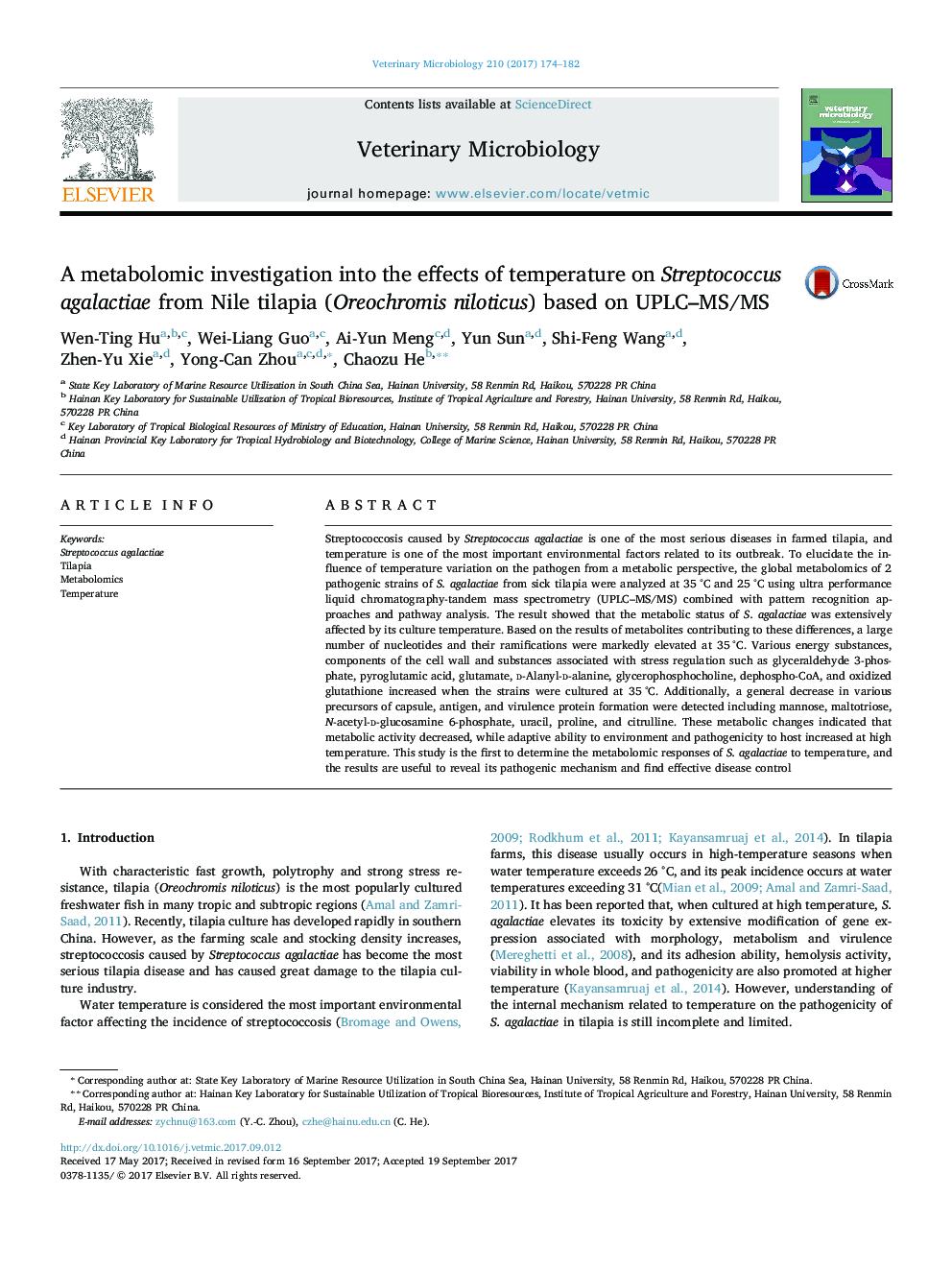| Article ID | Journal | Published Year | Pages | File Type |
|---|---|---|---|---|
| 5545090 | Veterinary Microbiology | 2017 | 9 Pages |
Abstract
Streptococcosis caused by Streptococcus agalactiae is one of the most serious diseases in farmed tilapia, and temperature is one of the most important environmental factors related to its outbreak. To elucidate the influence of temperature variation on the pathogen from a metabolic perspective, the global metabolomics of 2 pathogenic strains of S. agalactiae from sick tilapia were analyzed at 35 °C and 25 °C using ultra performance liquid chromatography-tandem mass spectrometry (UPLC-MS/MS) combined with pattern recognition approaches and pathway analysis. The result showed that the metabolic status of S. agalactiae was extensively affected by its culture temperature. Based on the results of metabolites contributing to these differences, a large number of nucleotides and their ramifications were markedly elevated at 35 °C. Various energy substances, components of the cell wall and substances associated with stress regulation such as glyceraldehyde 3-phosphate, pyroglutamic acid, glutamate, d-Alanyl-d-alanine, glycerophosphocholine, dephospho-CoA, and oxidized glutathione increased when the strains were cultured at 35 °C. Additionally, a general decrease in various precursors of capsule, antigen, and virulence protein formation were detected including mannose, maltotriose, N-acetyl-d-glucosamine 6-phosphate, uracil, proline, and citrulline. These metabolic changes indicated that metabolic activity decreased, while adaptive ability to environment and pathogenicity to host increased at high temperature. This study is the first to determine the metabolomic responses of S. agalactiae to temperature, and the results are useful to reveal its pathogenic mechanism and find effective disease control
Related Topics
Life Sciences
Agricultural and Biological Sciences
Animal Science and Zoology
Authors
Wen-Ting Hu, Wei-Liang Guo, Ai-Yun Meng, Yun Sun, Shi-Feng Wang, Zhen-Yu Xie, Yong-Can Zhou, Chaozu He,
